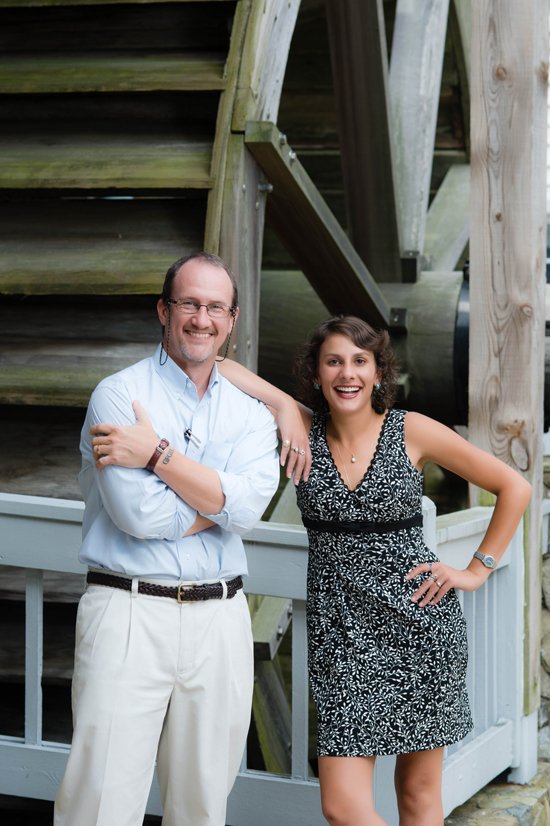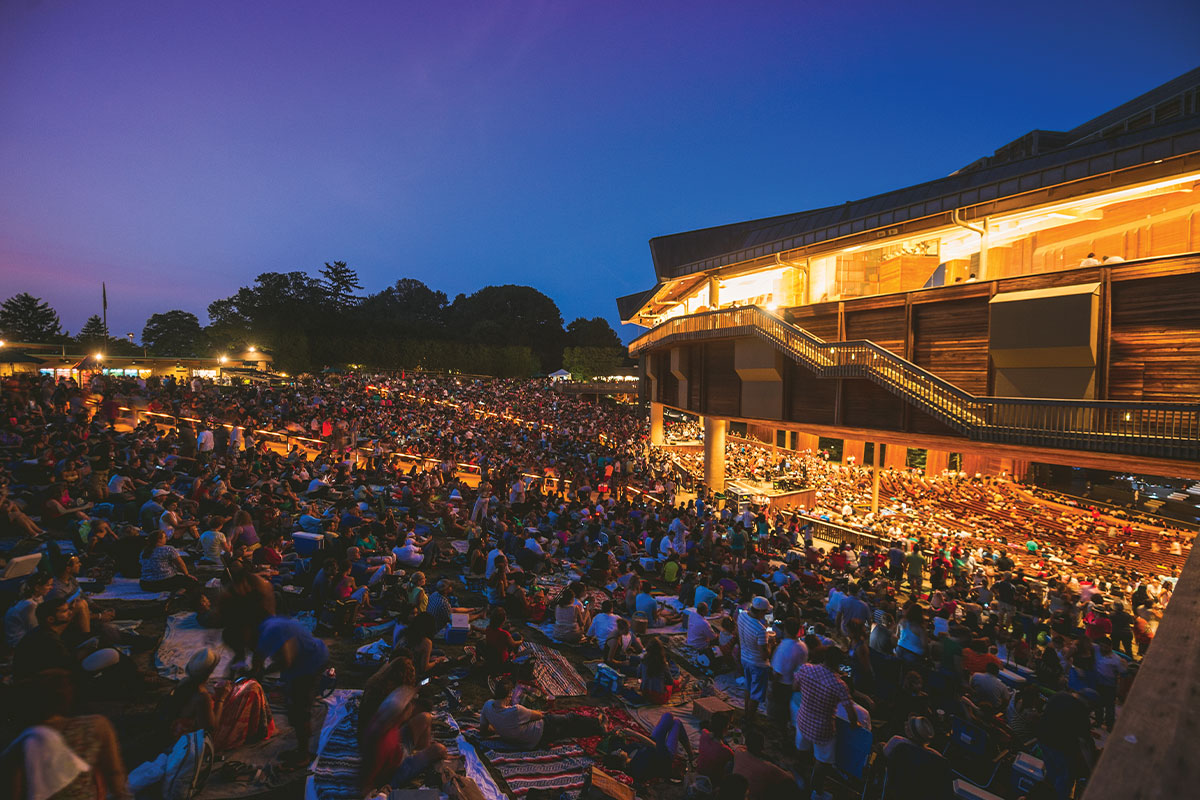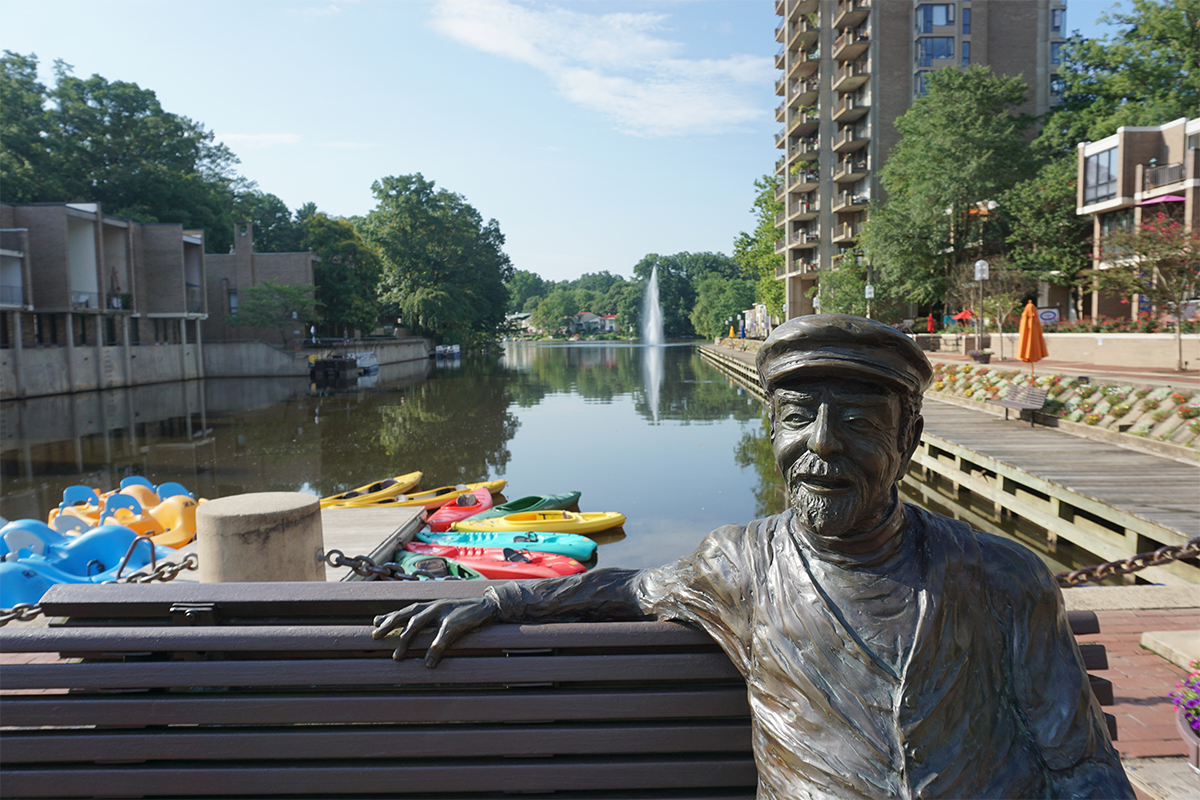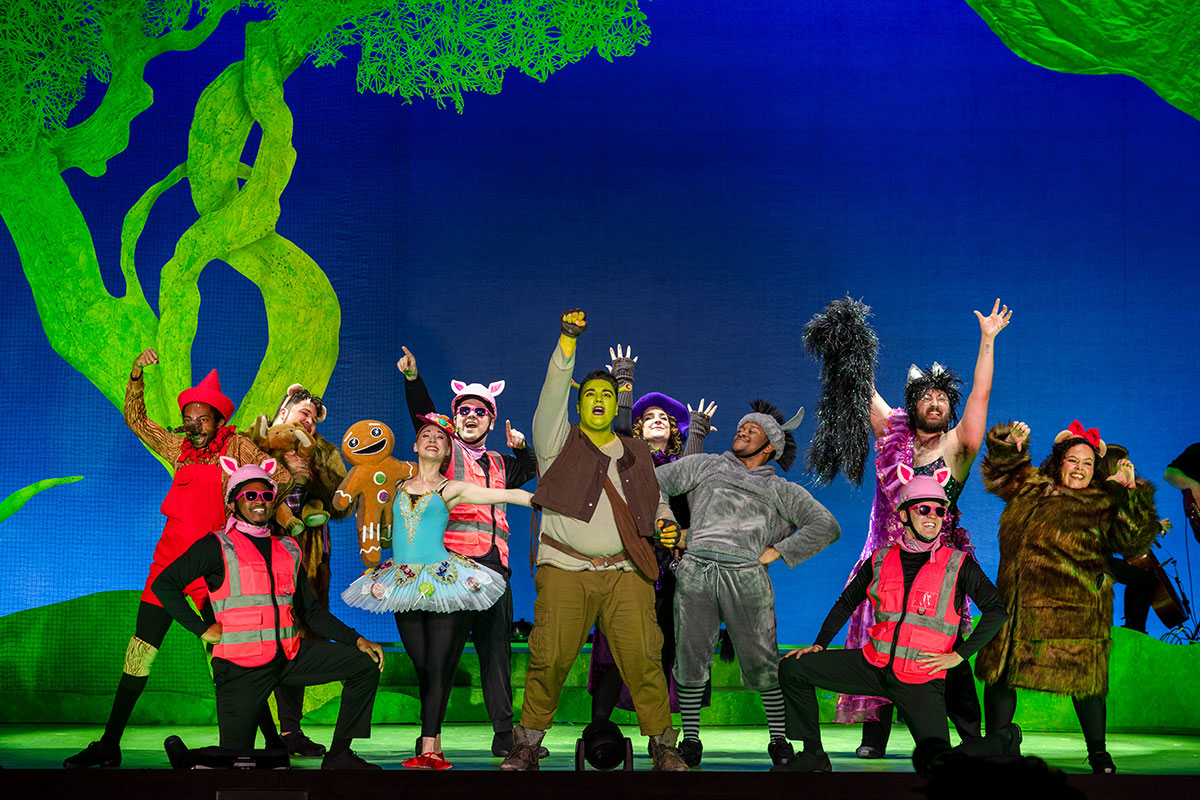Prince William County’s first-ever poet laureates on their role of bringing culture into everyday life.

While sitting at Cafe Sperl, Robert Scott, living in Austria as a concert musician, remembers seeing a group of older women “look up their noses at me as this American in their country.” It was then, in front of what Scott says is “one of the most respected and proud Austrian cafes” that a little Turkish boy stood on the street corner and peed right in front of the cafe. “If this cluster of women could have killed, cooked and eaten that boy they would have,” says Scott. “And I thought, get a load of this.” He wrote it down, and while he never published the story, it changed his path.
Alexandra “Zan” Hailey started earlier. In third grade, she would ride to school, writing limericks on the bus.
Earlier this summer, Prince William County named Scott, 46, and Hailey, 22, as its first-ever poet laureates. The Osbourn Park English teacher (Scott) and VCU student (Hailey) each proposed their own program to engage the community: Scott wants to gather 10,000 poems into a permanent display and Hailey hopes to lead workshops focusing on meshing the worlds of written art with visual art.
Do you feel you have a greater responsibility to lead people down the path of inspiration?
Scott: There are half a million people in this county and most of them have creative ideas. It is reinforcing the ideas that John Grisham and Stephen King, they are no different from them. They worked at hacking away at it everyday, and it is an everyday thing. Every minute you are playing Candy Crush is a minute you’re not getting better at writing.
Hailey: I’ve written countless, countless poems I would never read to anybody. It took me some time to get to a point where my writing actually did mean something, that aha moment of Oh, I understand there is an emotion here, there is a feeling going into it, there is something that the audience can compare their own lives to. Audience is key, and whether or not you know that your doing it at a certain point you start to include them in your creative process, so you’re not just writing to write, you’re writing to share something.
What do you want your legacy to be?
Hailey: Using different mediums and different art forms to express yourself while still writing. There is something about quieting the writer and doing that silent, meditative art. Ekphrasize yourself—really build on your own creativity and develop [your] writing throughout that process. More production than consumption. Starving yourself on your consumption and heightening your level of production will give you more practice. If you’ve read a book of poetry then write ten poems in that style. Don’t just read it and move on. Use it for your expansion.
Scott: I’m hoping that if everything goes well we will stand in front of some permanent testament of the poetic voice in Prince William County. It’s too big of a community for me to go tearing around in my Kia Soul saying, ”Write a poem. Write a poem.” I want [the writing community of the county] to be there with us. I want to be able to say we did this together and it’s important and it’s valuable and it’s not poetry by poets, it’s poetry by the guy who cuts your grass, guys who work the checkout line at Wegmans, stay-at-home moms, and soccer moms, and lawyers and whomever else. —Lynn Norusis
(August 2014)




